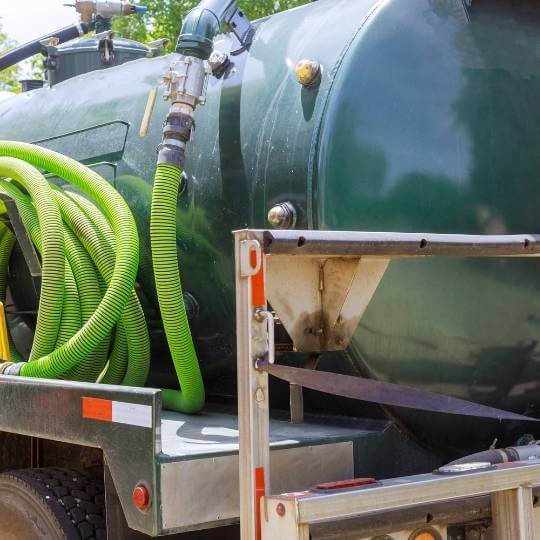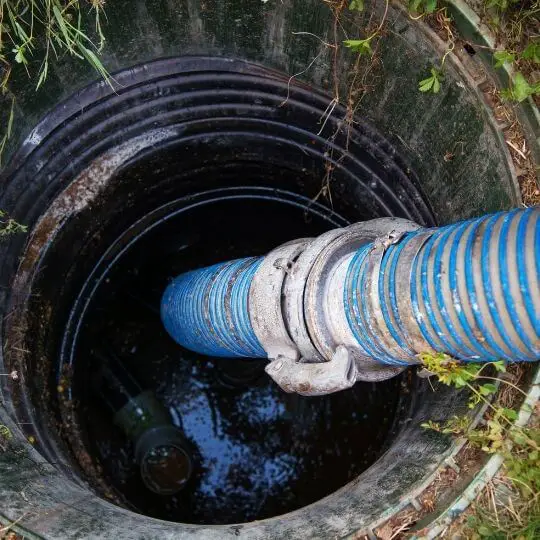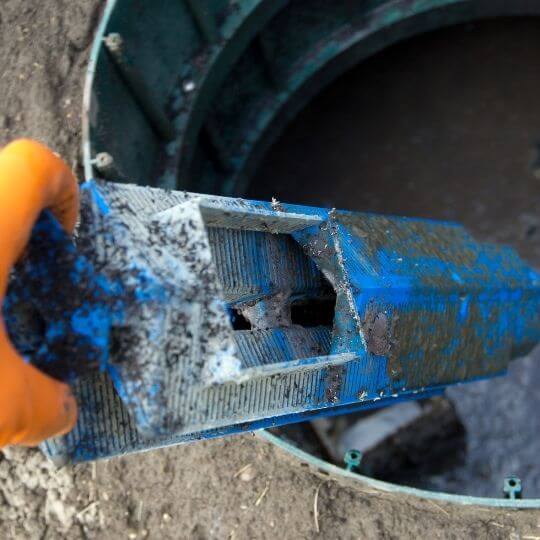Wondering what’s that smell like sewage outside my house? It’s a very common foul odor and every homeowner has encountered it at least once.
The fact that sewage smell is common doesn’t mean you should overlook it. In many cases, this smell is a sign that something is wrong with your drains.
Throughout this post you will find out:
- How sewage smell forms;
- What the most common causes of sewage smell are;
- Why sewage smell can occur outside your house;
- A few effective fixes to stop sewage smell.
How does sewage smell appear?

Sewage smell is similar to the smell of rotten eggs and is far more common than you think.
Sewage smell is caused by a combination of inorganic gases generated by anaerobic bacteria living in sewage and sludge. The gas coming from drains contains ammonia, hydrogen sulfide, carbon dioxide, hydrogen, and nitrogen. [1]
But not all of these gases have a bad smell. The culprit causing the rotten eggs smell is hydrogen sulfide, with ammonia sometimes adding insult to the injury. The rest of the gases found in sewage gas are odorless.
Humans find sewage gases repulsive because the concentration of hydrogen sulfide our noses can detect is quite low. The odor threshold is between .001 and .01 parts per million, an extremely low concentration. No wonder sewage smell forms so fast in the presence of sewage bacteria!
But how is sewage gas actually generated?
Hydrogen sulfide is produced when sulfate radical is reduced to hydrogen sulfide and water. This reaction takes place in microbial environments with no oxygen.
Is sewage gas dangerous?

Not under usual circumstances. Hydrogen sulfide is toxic, but cannot harm people at the concentrations in a sewer drain.[2]
However, if you are exposed to a large amount of sewer gas, you can experience symptoms such as:
- Headaches
- Nausea
- Vomiting
- Fatigue
- Lightheadedness
- Poor concentration
- Dizziness
6 Reasons Why Does It Smell Like Sewage Outside My House?

Now that you know how that sewage smell develops, let’s see some particular situations when it appears.
- A dried-out P-trap
The P-strap is one of the most effective remedies for sewage smells. However, one condition needs to be met for a P-trap to work. The P-trap must include a small amount of water preventing sewer gases from raising outside the drain.
P-traps can lose water for several reasons. One is represented by leaks. Another possibility is a clog pushing water down and breaking the water seal.
One thing is for sure – if a P-trap is empty, sewer gases find an escape and you start feeling the unpleasant smell.
- Broken vent pipes
Sewage smells present in the summer or when the weather is warm are often a sign of a broken vent.
Vent pipes remove gas and odors from sewer allowing at the same time fresh air into the plumbing system. As a result, water flows smoothly through the drain pipes. When your home’s vent is not working correctly, the drainage system starts to release sewage smell.
- Sewer leaks
Damage to your sewer or septic pipes can cause leaks, including sewer gas leaks. Main causes of sewer pipe damage are rust, corrosion, blockages, and improper pipe joints.
- Septic blockage
Clogged pipes can produce sewage odors inside and outside your home. in this scenario, the sewer smells more during heavy water usage or when the wind blows. What happens is that gas is forced in areas that it would normally not reach.
- A full septic tank
Are you on a septic tank? There are situations when you could be dealing with sewage smell.
Have you noticed people saying: “It smells like sewage outside my house when it rains?”
Is it normal for a septic tank to smell outside?
The explanation behind the phenomenon is this:
Rainwater needs to go somewhere when it falls. Gravity directs it to the lowest point in your yard, and that could be your septic tank. An increasing volume of water in your septic tank causes gas to move upwards and out.
You could be feeling that smell before it rains, too. Rainy weather causes atmospheric pressure changes with the air becoming heavier. Gases found in the septic tank will no longer escape through the vent and will stick to the ground. As a result, you may feel a smell of rotten eggs in your yard.
- A loose toilet
If your toilet bowl is not properly fixed to the ground, it can let sewer gases escape inside your home. Look for loose joints or bolts to make sure sewage gas cannot escape to your bathroom.
Why does my neighborhood smell like sewage?
Sewage smell often occurs inside your home but can also occur outside.
This phenomenon is not so uncommon and the causes can be difficult to eliminate.
Causes of sewer smell in your neighborhood include buildup of sewer gas that has escaped from the municipal sewer system. When this happens, you need to contact your local sewage company through their customer or emergency line.
Another possibility is someone’s private septic system leaking into the neighborhood’s drainage system. [3]Unfortunately, you may have neighbors who don’t maintain their septic tank or cesspool properly. At the same time, many would not pay for access to the municipal sewer because of the expensive fees.
If the sewage smell problem comes from your property, the good news is you can take action. If the smell is in your neighborhood, solving the issue can be harder.
How can I eliminate smell like sewage outside my house?

Have you located the source of smell in your yard? You can take action and solve this immediately. Here are some efficient and fast fixes to sewage smell outside your house:
- Clean your drains
The largest part of your drains is located outside the home.
Buildup and biofilm forms inside pipes in time, no matter what you do. The slimy bacteria growing inside your pipes contribute to that smell and are dangerous for your health.
You can use DIY or commercially-available solutions to clean your drains. Alternate the cleaning solutions with hot water for better results.
- De-sludge your septic tank
Organic matter inside your septic tank is a major source of sewage smell, especially when it rains.
Recommended de-sludging frequency depends on the size of your septic tank and the amount of wastewater you produce. Good practice guides recommend de-sludging every two or three years. By keeping the solid matter level low, the effluent will be able to leak into the release pipes. Moreover, sewage gas will have plenty of room to stay inside the tank.
- Use a vent filter
You can’t stop the creation of septic and sewer gases, but you can eliminate their odor. Sometimes, the smell appears without a serious cause. Common causes are temperature variances, changes in wind direction and having your home located against a hill. Negative pressure can develop, pushing the septic gas down from the roof vent and down into your yard.
Consider installing a Septic Vent Odor Filter. This device easily slides onto your vent pipes, putting an end to this annoying phenomenon.
- Contact the water company
If you are connected to the municipal sewage and the smell persist no matter what you do, contact the company. The smell could come from areas owned and maintained by the water company.
The Verdict: Smell Like Sewage Outside My House?
Causes are multiple: a full septic tank, municipal sewer problems, and sewer gases coming down from your roof vent. It’s also possible that someone is not taking care of their septic system and the foul odor spreads everywhere in your neighborhood.
The problem can be easily solved, especially when its cause is on your property. Maintaining your septic system, installing vent filters, and keeping your drain pipes clean can eliminate the well-known rotten eggs smell.

Michael Davis is a heating & plumbing expert who currently works as independent contractor in SC. He also writes for Plumbertip.
For almost 10 years he worked on various plumbing tasks across South Carolina.


